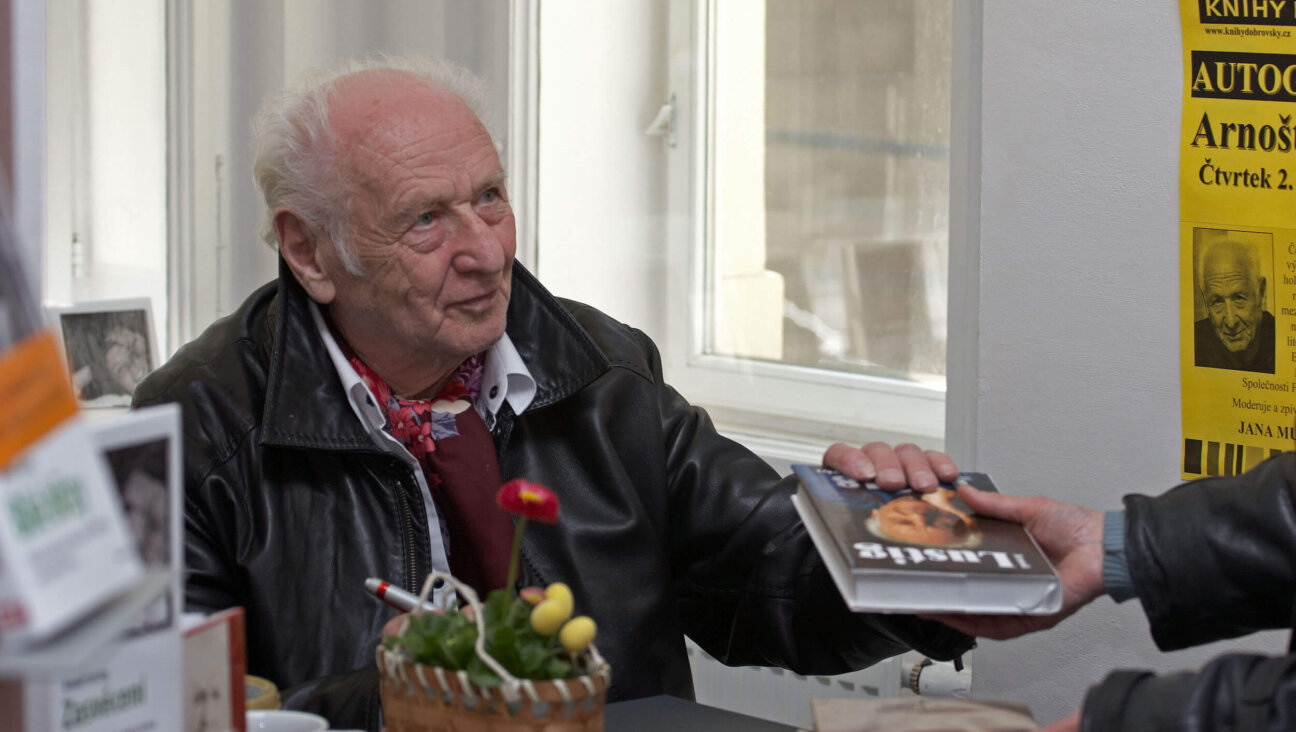For Some Palestinians, Trump Remarks Offer Opening To One Democratic State

Graphic by Angelie Zaslavsky
Proponents of one democratic state in the Holy Land saw a possible opening in President Trump’s statement yesterday that he would back a one-state solution if that’s the one Israelis and Palestinians “like best.”
Trump broke with decades of U.S. foreign policy to promote two states in the region when he said that he would be open to a one-state solution “if Israel and the Palestinians are happy” at a joint press conference with Israeli Prime Minister Benjamin Netanyahu.
His statement was hailed by leaders on the Israeli right, who declared the end of the Palestinian state. But one state advocates on the left also said that Trump’s statements could help their cause by making clear that the two-state solution is unfeasible and that it’s time for fresh ideas.
“The mask is off” when it comes to insisting upon two states, said Diana Buttu, a former Palestinian negotiator and proponent of one democratic state.
“Uttering the word ‘one-state’ does not in and of itself fascinate me because I know who Trump’s bedfellows are and that worries me,” she said, referring to Trump’s son-in-law and adviser Jared Kushner and his pick for Israel envoy David Friedman, both of whom have ties to the settler movement. “But at the same time I think that now people are going to start to wake up and maybe realize that there are other alternatives out there.”
Ali Abunimah, the author of “One Country: A Bold Proposal to End the Israeli-Palestinian Impasse,” said that his response to Trump’s one-state comment was: “Good riddance to a totally failed dogmatic orthodoxy” of two states.
“It doesn’t imply that I have any faith whatsoever in Trump,” he continued. “It’s simply that it is time for a broader discussion of how to get out of this impasse.”
The right wing and left wing visions for a one-state solution could not be more different. Israeli settlers and their advocates want Israel to annex all or part of the West Bank, with several different proposals for what might happen to the Palestinians there, from incentivizing them to leave, to offering them residency or citizenship. Critics of this configuration warn that it amounts to apartheid.
One-staters who believe in a democratic state for Israelis and Palestinians envision a shared system of government with equal rights for all. Their one state would redress Zionist policies that have harmed Palestinians, and allow Palestinian refugees and their descendants to return to the land inside Israel’s 1948 border from which their families fled or were forced out. Detractors of this idea warn that it would spell the end of a Jewish state.
Activists for a democratic one-state said they had no faith in Trump to bring their vision about. Trump, they said, was already worsening the plight of Palestinians by giving the Israel free rein to deepen its military occupation in the West Bank without American rebuke.
But Trump’s flexibility on two-states, a solution that they said only undermined Palestinian independence by forcing Palestinians to negotiate with their occupier, could help lay the groundwork for one state, as Abunimah wrote in an article on Electronic Intifada, the site that he edits.
“Maybe there is some silver lining here in the fact that the one state becomes slowly the only game in town,” said Ilan Pappe, an Israeli scholar and the author of “The Ethnic Cleansing of Palestine.”
Contact Naomi Zeveloff at [email protected]















